Digital Poster
Shining Light on Hepatobilio-Pancreatic GI Cancer Imaging
ISMRM & ISMRT Annual Meeting & Exhibition • 10-15 May 2025 • Honolulu, Hawai'i

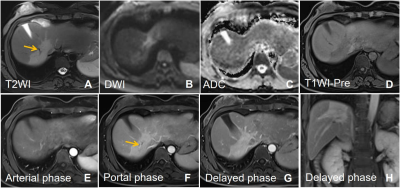 |
Computer Number: 97
2673. Differentiation
of Confluent Hepatic Fibrosis and Mass Forming Intrahepatic
Cholangiocarcinoma with Infltrative Tumor Margin on MR Imaging
J. LIU
Department of MR Imaging, the First Affiliated Hospital of Zhengzhou University, zhengzhou, China
Impact: The study detected several key MRI features for
accurate diagnosis CF and differentiation from mICCITM,
which may avoid unnecessary biopsies and overtreatment, and
providing better patient care.
|
|
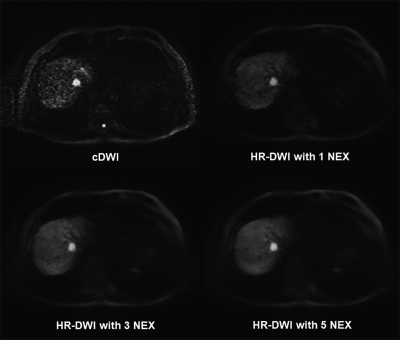 |
Computer Number: 98
2674. HR-DWI
with Super-Resolution DLR vs. Conventional DWI: Scan Time, Image
Quality and Diagnostic Performance in Hepato-Pancreato-Biliary
Tumors
T. Yoshikawa, K. Yamamoto, Y. Sano, M. Ikedo, M. Ozaki, M.
Yui, H. Nagata, T. Ueda, M. Nomura, D. Takenaka, Y. Ozawa,
Y. Ohno
Fujita Health University School of Medicine, Toyoake, Japan
Impact: SR-DLR had superior potential for acquisition
time reduction with image quality and diagnostic capability
improvements on HR-DWI, when compared with cDWI. When
applied SR-DLR for HR-DWI, 3 NEX would be better to be
applied in this setting.
|
|
 |
Computer Number: 99
2675. Predicting
treatment outcome and prognosis in locally advanced rectal
cancer using pretreatment MRI and pathology based machine
learning models
L-N Do, I. Park, S. H. Heo
Chonnam National Univeristy, Gwangju, Korea, Republic of
Impact: The results highlight the potential of machine
learning models using MRI and pathology to enhance
non-invasive prediction of rectal cancer treatment outcomes.
This could lead to earlier, more tailored interventions and
stimulate research into multimodal integration methods.
|
|
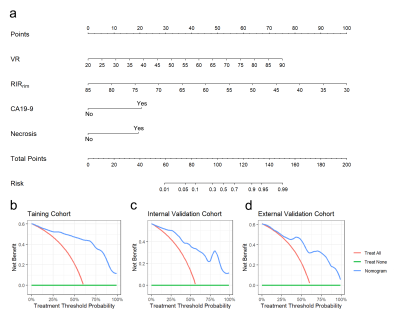 |
Computer Number: 100
2676. Nomogram
based on Gadobenate dimeglumine-enhanced MR imaging can predict
the Ki-67 of typical intrahepatic mass-forming
cholangiocarcinoma
S. Zhang, B. Kang, X. Wang, C. Sun
Shandong Provincial Hospital Affiliated to Shandong First Medical University, Jinan, China
Impact: A nomogram based on Gd-BOPTA-enhanced MRI was
developed to predict Ki-67 expression in IMCC patients
preoperatively and non-invasively, which may help clinicians
to identify IMCC patients with high Ki-67 expression.
|
|
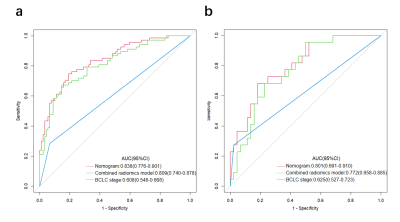 |
Computer Number: 101
2677. Radiomics
Analysis of Gadoxetic Acid-Enhanced MRI for Predicting
Proliferative Hepatocellular Carcinoma
Z. Yan, X. Zhang, Z. Liu, X. Zhao
Nantong University, Nantong Third People’s Hospital, Affiliated Nantong Hospital 3 of Nantong University, Nantong, China
Impact: The nomogram combining independent clinical
predictive factors and the combined radscore demonstrates
the best diagnostic efficacy for proliferative HCC, while
different radiomic models and the nomogram can provide
varying prognostic stratification values.
|
|
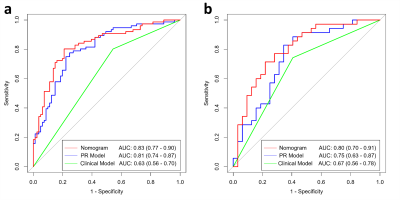 |
Computer Number: 102
2678. MRI-based
radiomics models for prediction of vessels that encapsulate
tumor clusters and microvascular invasion in hepatocellular
carcinoma
Z. Liu, T. Zhang, Z. Yan, X. Zhao
Nantong Third People's Hospital, Affiliated Nantong Hospital 3 of Nantong University, Nantong, China
Impact: Preoperative
non-invasive identification of VM-HCC assists clinicians in
developing personalized treatment strategies, thereby
improving patient prognosis.
|
|
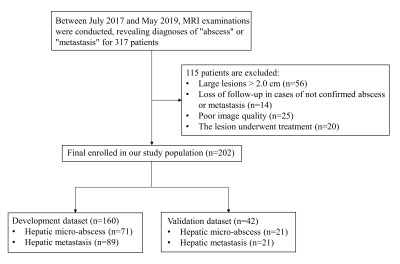 |
Computer Number: 103
2679. Radiomics
Based on Magnetic Resonance Imaging in Differentiation of
Hepatic micro-abscess from Hepatic micro-metastasis: A
Multicenter Study
J. Zhang, J. Luo
Department of Radiology, Dalian Friendship Hospital, No. 8, 38 Square, Zhongshan District, Dalian 11, Dalian, China
Impact: Our findings regarding Differentiation of
Hepatic micro-abscess from Hepatic micro-metastasis is
essential in selecting the best treatment option and
enhancing prognosis.
|
|
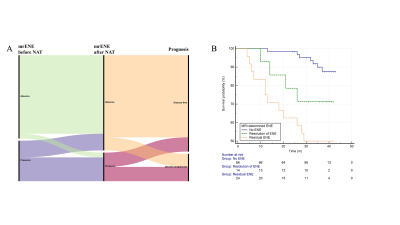 |
Computer Number: 104
2680. Extranodal
extension status and its changes on MRI predicts prognosis of
locally advanced rectal cancer patients
Q-Y Li, X-Y Zhang, Y-S Sun
Peking University Cancer Hospital & Institute, Beijing, China
Impact: Extranodal extension status and its changes on
MRI have strong prognostic implications in locally advanced
rectal cancer patients, which may become a new indicator for
the selection of appropriate treatment regimens in the
future.
|
|
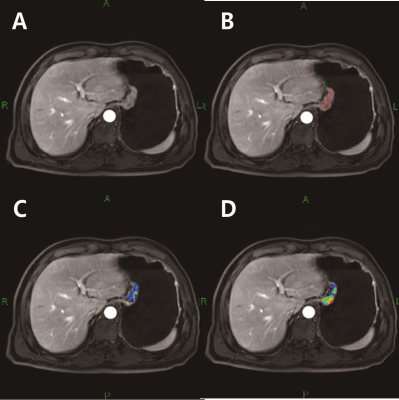 |
Computer Number: 105
2681. Dynamic
contrast-enhanced gastric MRI features for preoperative
prediction of microsatellite instability status in gastric
cancer
X-X Wei, Z-T Sang, Y-J Hou, Q. Li, W-W Yu, X-S Liu
the First Affiliated Hospital of Nanjing Medical University, Nanjing, China
Impact: In this single-institution study, XD-VIBE
DCE-MRI quantitative parameters demonstrated promise as
markers of MSI status in GC. These features could provide
added prognostic value and may assist in making
individualized treatment decisions and positioning for
biopsy.
|
|
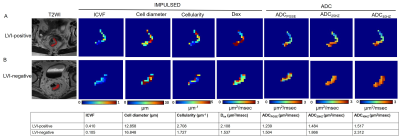 |
Computer Number: 106
2682. Tumor
Microstructural Measurement at Time-Dependent Diffusion MRI
Mapping for Predicting Lymphovascular Invasion in Rectal Cancer
F. Lu, M. Chen, R. Wu, K. Li, Z. Liao, H. Li
Sichuan Academy of Medical Sciences and Sichuan Provincial People's Hospital, Chengdu, China
Impact: The intracellular volume fraction (ICVF) from
td-dMRI shows promise as a biomarker for LVI in rectal
cancer. Combining ICVF and cellularity with MRI-reported
EMVI enhances predictive performance, supporting clinicians
in identifying high-risk patients for targeted treatment
strategies.
|
|
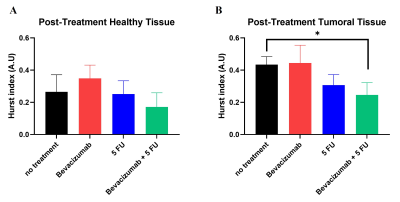 |
Computer Number: 107
2683. Tumour
mechanics and vascular fractality quantification via
MR-Elastography to gauge therapy response in liver metastasis
A. Boumaza, G. Mangin, J. Penney, G. Annio, S. Laouirem, M.
Albuquerque, S. Holm, K. Sølna, V. Vilgrain, V. Paradis, R.
Sinkus
INSERM, PARIS, France
Impact: This approach offers a non-invasive biomarker
for evaluating therapies, advancing personalized treatments
for liver metastases
|
|
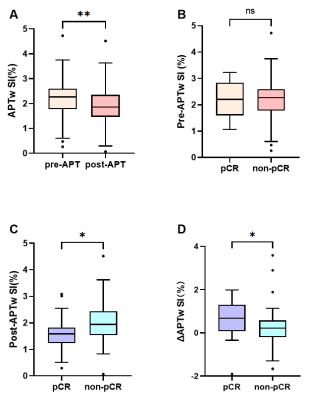 |
Computer Number: 108
2684. Amide
Proton Transfer-weighted MRI in predicting pathological complete
response of rectal adenocarcinoma
P. Xie, Q. Huang, L. Yang, K. Niu, D. Ma, X. Meng
The Sixth Affiliated Hospital, Sun Yat-sen University, Guangzhou, China
Impact: APTw MRI may help identify patients with a good
response.
|
|
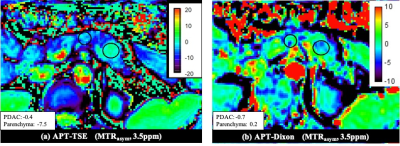 |
Computer Number: 109
2685. Amide
Proton Transfer Imaging in Pancreatic Ductal Adenocarcinoma and
Pancreatic Parenchyma
A. Kanki, Y. Fukukura, Y. Sato, Y. Ueda, T. Iwanaga, A.
Yamamoto, T. Tamada
Kawasaki Medical School, Kurashiki, Japan
Impact: Pancreatic APT signal in APT-TSE is affected by
the presence of fat deposition. Therefore, APT-Dixon is
essential for analysis of the pancreatic APT signal. APT
imaging in the pancreas may have the potential to assess the
biological behaviour of PDAC.
|
|
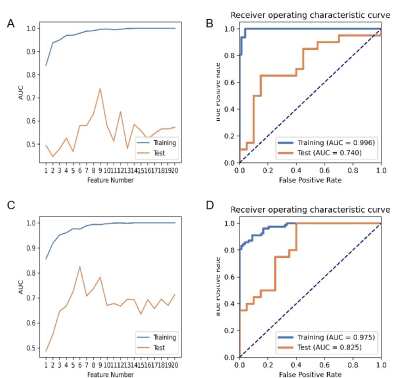 |
Computer Number: 110
2686. Prediction
of Micrometastases in Colorectal Cancer Liver Metastasis Using
Habitat Analysis Based on Multi-parametric MRI
H. Zhang, P-Y Wu, T. Tong
Department of Radiology, Fudan University Shanghai Cancer Center, Shanghai, China;Department of Medical Oncology, Fudan University Shanghai Cancer Center, Shanghai, China, Shanghai, China
Impact:
This study provides a powerful tool for preoperative prediction, optimizing surgical strategies and enhancing patient quality of life. |
The International Society for Magnetic Resonance in Medicine is accredited by the Accreditation Council for Continuing Medical Education to provide continuing medical education for physicians.